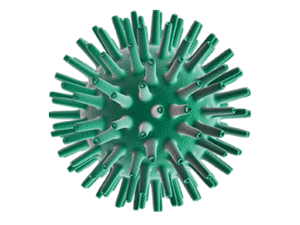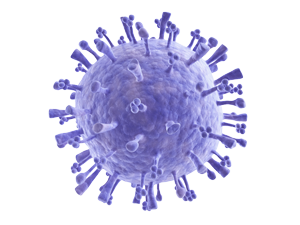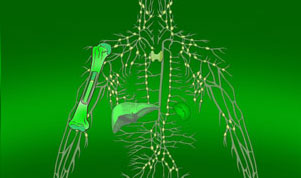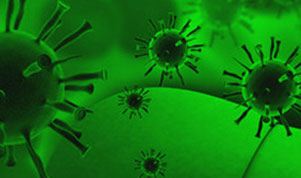This is a general overview. For more in-depth information, see our health professional fact sheet.
How does your immune system work?
Your immune system is made up of cells, tissues, and organs that help fight viruses, bacteria, and other germs that cause infections and other diseases. For example, your skin helps prevent germs from getting inside your body. Cells that line your digestive tract also help protect against harmful germs that cause diseases. White blood cells try to destroy substances they recognize as foreign to your body. Some white blood cells also recognize germs they have been exposed to before and develop antibodies to defend against them in the future.
What do we know about specific dietary supplement ingredients and immune function?
Your immune system needs certain vitamins and minerals to work properly. These include vitamin C, vitamin D, and zinc. Herbal supplements, probiotics, and other dietary supplement ingredients might also affect your immune system.
Eating a variety of nutritious foods can give you enough vitamins, minerals, and other nutrients for a healthy immune system. However, you might wonder whether taking certain dietary supplements can improve your body’s immune system and its ability to fight infections.
This fact sheet describes what we know about the effectiveness and safety of common vitamins, minerals, and other dietary supplement ingredients that might affect immune function.
Dietary supplement ingredients are presented in each section in alphabetical order.
The health professional version of this fact sheet includes more details and references to the scientific literature.
Vitamins and Minerals
Getting enough vitamins and minerals through the foods and beverages you consume is important for a healthy immune system. It’s especially important to get enough of vitamins A, B6, B12, C, D, E, and K as well as folate, copper, iodine, iron, magnesium, selenium, and zinc.
If your diet doesn’t include adequate amounts of certain vitamins and minerals, your immune system will not be able to function as well as it could, you might be more likely to get infections, and you might not recover as well. If your health care provider determines that you are not getting enough of a specific nutrient, vitamin and mineral supplements can help increase intakes to recommended amounts. In most cases, however, if you don’t have a deficiency, increasing your intake of vitamins and minerals through dietary supplements doesn’t help prevent infections or help you recover from them any faster.
Vitamins
Vitamin A
Vitamin A is an essential nutrient found in many foods. It exists in two different forms:
- Preformed vitamin A is found in fish, organ meats (such as liver), dairy products, and eggs.
- Provitamin A carotenoids are turned into vitamin A by your body. They are found in fruits, vegetables, and other plant-based products. The most common provitamin A carotenoid in foods and dietary supplements is beta-carotene.
Vitamin A is important for healthy immune function as well as vision, reproduction, growth, and development.
Vitamin A deficiency is rare in the United States, but it is common in many low- and middle-income countries.
The recommended daily amount (known as Recommended Dietary Allowance or RDA) ranges from 300 to 1,200 microgram (mcg) retinol activity equivalents (RAE) for infants, children, and teens, depending on age, and from 700 to 1,300 mcg RAE for adults.
Does it work?
Diarrhea in children
Children with a vitamin A deficiency are more likely to get diarrhea caused by germs. These children also have a higher chance of dying of diarrhea, especially in sub-Saharan Africa and south Asia.
Research suggests that vitamin A supplements lower the risk and severity of diarrhea in children in low- and middle-income countries. However, vitamin A supplementation might not help very young infants in these countries.
HIV infection
HIV infection can decrease your appetite and weaken your body’s ability to use nutrients from food. HIV can also increase the risk of related health problems, such as diarrhea and respiratory diseases.
It’s not clear if vitamin A supplements lower the risk of spreading HIV or keep the disease from getting worse. Some studies in young children with HIV have found that vitamin A supplements help lower the risk of death. However, it’s not clear whether vitamin A supplements affect the risk of diarrhea or respiratory infections in young children with HIV. Other studies in adults with HIV have found that vitamin A supplements do not improve immune function.
Research in pregnant people with HIV has found that vitamin A supplements do not help reduce the chance of passing HIV from mother to infant. However, one study found that pregnant people with HIV who took vitamin A were more likely to carry their babies to full-term.
Measles in children
In low- and middle-income countries where vitamin A deficiency is common, children with measles are more likely to have severe symptoms and may die from the disease. In these children, vitamin A supplements might help prevent measles, but it’s unclear whether they lower the risk of dying from measles.
Pneumonia and other respiratory infections in children
Children who don’t get enough vitamin A might have a higher risk of respiratory infections. However, it’s not clear whether taking vitamin A supplements affects the risk or severity of pneumonia and other respiratory infections. Some studies in young children with pneumonia have found that vitamin A supplements shorten the length of time children need to be hospitalized and decrease the number of days they have symptoms (such as fever and cough). However, other studies in children have found that vitamin A supplements don’t lower the risk of getting or dying from pneumonia or other respiratory infections. In addition, some research suggests that taking higher than recommended doses of vitamin A supplements might increase the risk of respiratory infections in children who already get enough nutrients from the foods they eat.
Is it safe?
Preformed vitamin A is safe at daily intakes up to 600 to 2,800 mcg for infants, children, and teens, depending on age, and up to 3,000 mcg for adults. There are no upper limits for beta-carotene and other forms of provitamin A.
Getting too much preformed vitamin A can cause severe headache, blurred vision, nausea, dizziness, muscle aches, and problems with coordination. In severe cases, getting too much preformed vitamin A can even lead to coma and death.
If you are pregnant, taking too much preformed vitamin A can cause birth defects, including abnormal eyes, skull, lungs, and heart. If you are or might be pregnant or breastfeeding, you should not take high-dose supplements of preformed vitamin A.
High intakes of beta-carotene (provitamin A) do not cause the same problems as preformed vitamin A. Consuming high amounts of beta-carotene can turn the skin yellow-orange, but this condition is harmless and goes away when you eat less of it. However, several studies have shown that smokers, former smokers, and people exposed to asbestos who take high-dose beta-carotene supplements have a higher risk of lung cancer and death.
Vitamin A supplements might interact with some medications such as orlistat (used for weight loss), acitretin (used to treat psoriasis), and bexarotene (used to treat the skin effects of T-cell lymphoma).
More information about vitamin A is available in the ODS consumer fact sheet on vitamin A.
Vitamin C
Vitamin C is an essential nutrient found in citrus fruits and many other fruits and vegetables. Vitamin C is an antioxidant and is important for healthy immune function. The body also needs vitamin C to make collagen.
The RDA ranges from 15 to 115 milligrams (mg) for infants, children, and teens, depending on age, and from 75 to 120 mg for nonsmoking adults. People who smoke need 35 mg more than the RDA per day.
Does it work?
Common cold
Taking vitamin C regularly might help decrease cold symptoms and reduce the number of days a cold lasts. It might also help reduce the risk of getting a cold in people who undergo extreme physical stress, such as marathon runners and soldiers stationed in very cold locations. However, taking vitamin C after coming down with a cold may not be helpful.
Research suggests that vitamin C supplements might be more effective in people who do not get enough vitamin C from foods and beverages.
Sepsis (using intravenous vitamin C, not vitamin C supplements)
Sepsis is a life-threatening complication of an infection that can damage the body’s organs and tissues. It’s not clear whether high-dose intravenous (IV) vitamin C helps treat sepsis, and in some cases it might be harmful. In some studies, IV vitamin C reduced the risk of death, but in other studies it did not affect the risk of death or the amount of organ damage. Other research suggests that IV vitamin C might increase the risk of death or organ damage.
Is it safe?
Vitamin C is safe at daily intakes up to 400 to 1,800 mg for children and teens, depending on age, and up to 2,000 mg for adults. Taking higher amounts of vitamin C can cause diarrhea, nausea, and stomach cramps, and it might also cause false readings on blood sugar monitors, which are used by people with diabetes. In people with hemochromatosis (an iron overload disorder), high amounts of vitamin C might cause iron build-up in the body, which can damage body tissues.
Vitamin C supplements might decrease the effectiveness of radiation therapy and chemotherapy.
More information about vitamin C is available in the ODS consumer fact sheet on vitamin C.
For information about vitamin C and COVID-19, see the ODS consumer fact sheet, Dietary Supplements in the Time of COVID-19.
Vitamin D
Vitamin D is an essential nutrient that is naturally present in fatty fish and fish liver oils and in small amounts in beef liver, egg yolks, and cheese. It’s also added to some foods, such as fortified milk. Your body can also make vitamin D when your skin is exposed to the sun. Vitamin D is important for healthy bones and immune function.
The RDA ranges from 10 to 15 mcg (400 International Units [IU] to 600 IU) for infants, children, and teens, depending on age, and from 15 to 20 mcg (600 to 800 IU) for adults.
Does it work?
Flu, pneumonia, and other respiratory infections
People with low vitamin D levels might be more likely to get respiratory infections and might have a higher chance of dying from these infections. Some studies suggest that taking vitamin D supplements regularly might slightly reduce the risk of getting a respiratory infection, especially in people with low vitamin D levels. However, other studies have not found that taking vitamin D supplements reduces the risk of respiratory infections. In addition, vitamin D supplements do not appear to help treat respiratory infections.
HIV infection
People with HIV have a higher risk of vitamin D deficiency partly because many HIV medications cause the body to break down vitamin D faster than normal. Having a vitamin D deficiency might also worsen HIV infection. However, studies haven’t shown that vitamin D supplements improve the health of people with HIV.
Is it safe?
Vitamin D is safe at daily intakes up to 25 to 100 mcg (1,000 to 4,000 IU) for infants, children, and teens, depending on age, and up to 100 mcg (4,000 IU) for adults. Taking higher amounts can cause nausea, vomiting, muscle weakness, confusion, pain, loss of appetite, dehydration, excessive urination and thirst, and kidney stones. Extremely high doses can cause kidney failure, damaged blood vessels and heart valves, heart rhythm problems, and death.
Vitamin D supplements might interact with some medications such as orlistat (used for weight loss), statins (used to lower cholesterol levels), thiazide diuretics (used for high blood pressure), and steroids.
More information about vitamin D is available in the ODS consumer fact sheet on vitamin D.
For information about vitamin D and COVID-19, see the ODS consumer fact sheet, Dietary Supplements in the Time of COVID-19.
Vitamin E
Vitamin E (also called alpha-tocopherol) is an essential nutrient found in nuts, seeds, vegetable oils, and green leafy vegetables. It acts as an antioxidant and helps your immune system function properly. Vitamin E deficiency is rare.
The RDA is 4 to 15 mg for infants, children, and teens, depending on age, and 15 to 19 mg for adults.
Does it work?
Pneumonia and other respiratory infections
It’s not clear whether vitamin E supplements reduce the risk or severity of respiratory infections. Some studies have found that vitamin E supplements might help but others have not, and the effects might depend on whether someone has low vitamin E levels. One study in people who had normal vitamin E levels found that those who took high-dose vitamin E supplements had worse respiratory symptoms and were sick longer.
Is it safe?
Vitamin E from food is safe at any level. In supplements, vitamin E is safe at daily intakes up to 200 to 800 mg for children and teens, depending on age, and up to 1,000 mg for adults. Taking higher amounts can increase the risk of bleeding and stroke.
Vitamin E supplements might interact with blood thinners and might reduce the effectiveness of radiation therapy and chemotherapy.
More information about vitamin E is available in the ODS consumer fact sheet on vitamin E.
For information about vitamin E and COVID-19, see the ODS consumer fact sheet, Dietary Supplements in the Time of COVID-19.
Minerals
Selenium
Selenium is an essential mineral found in many foods, including Brazil nuts, seafood, meat, poultry, eggs, dairy products, bread, cereals, and other grain products. It acts as an antioxidant and is important for reproduction, thyroid gland function, and DNA production.
The RDA ranges from 15 to 70 micrograms (mcg) for infants, children, and teens, depending on age, and from 55 to 70 mcg for adults.
Does it work?
HIV infection
People with HIV have higher risk of selenium deficiency than other people, and this might worsen their infection and increase the risk of death. However, it’s not clear whether taking selenium supplements improves the health of people with HIV. Some studies have found that selenium supplements might improve immune function slightly in people with HIV, but other studies have not.
Is it safe?
Selenium is safe at daily intakes up to 45 to 400 mcg for infants, children, and teens, depending on age, and up to 400 mcg for adults. Taking higher amounts can cause a garlic odor in the breath, a metallic taste in the mouth, hair and nail loss or brittleness, skin rash, nausea, diarrhea, fatigue, irritability, and nervous system problems.
Selenium might interact with cisplatin (a drug used in chemotherapy).
More information about selenium is available in the ODS consumer fact sheet on selenium.
For information about selenium and COVID-19, see the ODS consumer fact sheet, Dietary Supplements in the Time of COVID-19.
Zinc
Zinc is an essential nutrient found in seafood, meat, beans, nuts, whole grains, and dairy products. It’s important for a healthy immune system, making proteins and DNA, healing wounds, and for proper sense of taste.
The RDA ranges from 2 to 13 mg for infants, children, and teens, depending on age, and from 8 to 12 mg for adults.
Does it work?
Common cold
Some studies suggest that zinc lozenges and zinc syrup speed recovery from the common cold if you start taking them at the start of a cold. However, these products don’t seem to affect the severity of cold symptoms. More research is needed to determine the best dose and form of zinc for the common cold as well as how often and how long it should be taken.
Pneumonia in children
Some studies in lower income countries show that zinc supplements lower the risk of pneumonia in young children. However, zinc doesn’t seem to speed recovery or reduce the number of deaths from pneumonia.
Diarrhea in children
Studies show that zinc supplements help shorten the duration of diarrhea in children in low-income countries, where zinc deficiency is common. The World Health Organization and UNICEF recommend that children with diarrhea take zinc for 10 to 14 days (20 mg/day, or 10 mg/day for infants under 6 months). However, it’s not clear if zinc supplements help children with diarrhea who already get enough zinc, such as most children in the United States.
HIV infection
Many people with HIV have low zinc levels. This occurs because they have trouble absorbing zinc from food and they often have diarrhea, which increases zinc loss. Some studies have found that supplemental zinc decreases diarrhea and complications of HIV, but other studies have not. Zinc supplements do not appear to reduce the risk of death in people with HIV.
Is it safe?
Zinc is safe at daily intakes up to 4 to 34 mg for infants, children, and teens, depending on age, and up to 40 mg for adults. Taking higher amounts can cause nausea, vomiting, loss of appetite, stomach cramps, diarrhea, and headaches. High intakes of zinc over a long time can cause low blood levels of copper and impair immune function.
Zinc supplements might interact with antibiotics, penicillamine (used to treat rheumatoid arthritis), and thiazide diuretics (used to treat high blood pressure).
More information about zinc is available in the ODS consumer fact sheet on zinc.
For information about zinc and COVID-19, see the ODS consumer fact sheet, Dietary Supplements in the Time of COVID-19.












